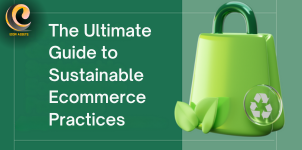Shopify and Sustainability: How to Run an Eco-Friendly E-Commerce Store
Running an e-commerce store on Shopify can be both profitable and sustainable. With growing awareness about environmental responsibility, customers are more inclined to buy from eco-friendly brands. If you're running a Shopify store or considering taking a Shopify course to improve your business, now is the perfect time to incorporate sustainability into your operations.
Shopify provides various tools, features, and integrations that help businesses minimize their environmental impact. Whether you're based in Lahore or anywhere in Pakistan, you can learn how to make your store sustainable through Shopify training, including Shopify dropshipping courses and Shopify for online courses. Let’s explore how you can make your Shopify store eco-friendly while improving your brand reputation and increasing sales.
1. Why Sustainability Matters in E-Commerce
The importance of sustainability in the e-commerce sector has never been higher. More consumers are demanding that brands take responsibility for their environmental impact. Incorporating sustainable practices into your Shopify store can help you stand out, reduce costs, and increase customer loyalty.
Key benefits of a sustainable Shopify store:
- Attract Eco-Conscious Consumers: Shoppers are increasingly favoring businesses that prioritize the environment.
- Reduce Costs: Sustainable practices often lead to reduced waste and operational efficiency.
- Boost Brand Loyalty: Customers prefer to support brands with eco-friendly missions.
2. Sustainable Shopify Tools and Features
Shopify offers several features that can help store owners integrate sustainability into their business. By taking advantage of these tools, you can operate your Shopify store with an eco-conscious mindset.
Shopify Apps for Sustainability
- EcoCart: Helps offset carbon emissions for every order placed.
- CarbonClick: Allows customers to contribute to carbon offset programs directly from their cart.
- Package Free Shop: Partner with zero-waste suppliers to minimize packaging waste.
Enrolling in a Shopify dropshipping course or a Shopify online course will teach you how to effectively use these tools to make your store more sustainable.
3. Sustainable Supply Chain Practices
Your supply chain has a significant impact on your store’s environmental footprint. By sourcing products from eco-friendly suppliers and minimizing shipping distances, you can greatly reduce your carbon footprint. Many Shopify dropshipping courses include lessons on how to find sustainable suppliers.
Tips for an eco-friendly supply chain:
- Partner with Local Suppliers: This reduces shipping distances and emissions.
- Use Recyclable and Minimalist Packaging: Opt for biodegradable or recyclable packaging to cut down on waste.
4. Shopify Training for Sustainability
If you’re new to Shopify or want to expand your knowledge, enrolling in a Shopify course can be a great way to learn how to operate your store more sustainably. Whether it’s a Shopify course in Lahore, Shopify course in Pakistan, or an online option, you’ll gain insights into best practices for running a green e-commerce store.
There are also free Shopify courses available, which provide valuable information on how to make your business eco-friendly without incurring high costs. Whether it’s a Shopify full course or a Shopify training class, you’ll get step-by-step guidance on how to optimize your store for sustainability.
5. Marketing Your Eco-Friendly Shopify Store
Once your store is optimized for sustainability, it's time to market this feature. Customers value transparency, so let them know about your eco-friendly efforts. Include this information in your product descriptions, marketing campaigns, and social media to attract eco-conscious buyers.
You can also promote your green efforts through Shopify courses dropshipping to learn how to effectively communicate these values to your customers. Use the power of storytelling to show how your store is making a positive impact.

